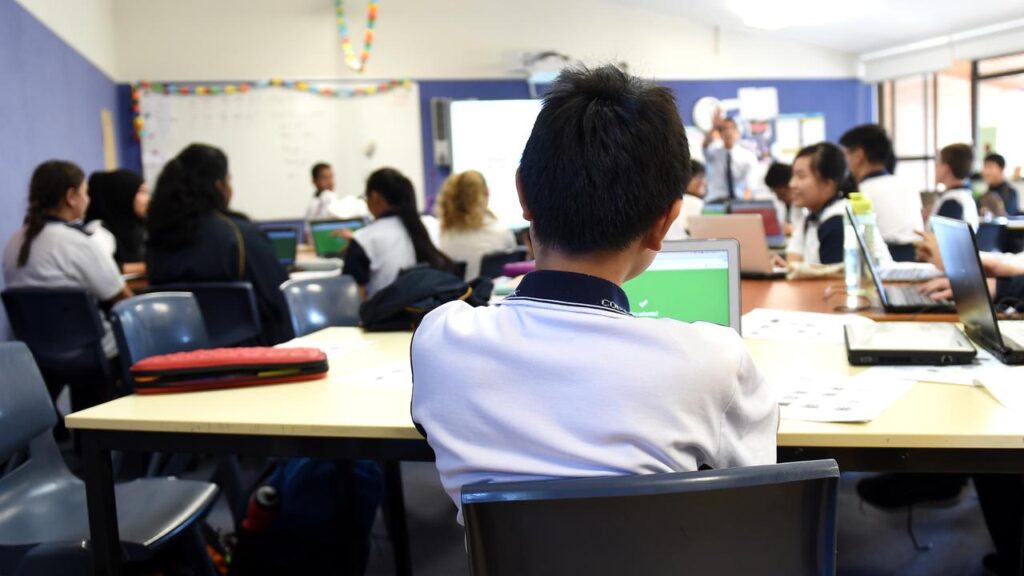Unions push back on productivity plan for schools, jobs
Rachel Jackson and Jacob Shteyman |

Unions are challenging a productivity plan for the nation’s classrooms and workplaces, setting up another fault line before a much-vaunted reform roundtable.
Artificial intelligence in schools would help to ease the load on teachers and tackle educational inequity, the Productivity Commission said in the fourth of five reports ahead of the government’s economic summit.
The report, released on Tuesday, urged the government to create a single online platform of planning materials for teachers across all states and territories to access to reduce the time spent out of class preparing for lessons.
This would particularly help teachers in remote areas or who instruct classes outside of their field of expertise.

State and territory governments were told to provide professional development and support for teachers to adopt and use AI tools effectively.
But the Australian Education Union said the commission’s proposals were the wrong solutions to a real problem of high workloads.
“Governments need to listen to the profession and respect their experienced and informed views about what is needed to lift results,” AEU deputy president Meredith Peace said.
“Teachers know that off-the-shelf lesson plans aren’t what they need to meet the individual needs of students.”
Cutting administration loads so teachers could spend more time on lesson planning and working with colleagues would be a better fix, Ms Peace said.
The Productivity Commission also recommended financial incentives for businesses to train workers and for lower occupational entry rules for jobs such as car repairers, hairdressers and painters and decorators.

Building the nation’s skills base was an important part of turning around Australia’s ailing productivity growth, it said.
“A thriving, adaptable workforce will give us the productivity growth we need to see higher wages and better living standards,” deputy chair Alex Robson said.
Council of Small Business Organisations Australia chair Matthew Addison welcomed the proposed financial incentives for workplace training.
“Formalised training can be expensive and time consuming, and for small businesses that can be very hard to absorb,” he said.
Business Council of Australia chief executive Bran Black backed the push to reduce barriers for people working in certain industries, as well as the recommendations to integrate AI in schools.
“Removing excessive and inconsistent workforce entry regulations, expanding alternative entry pathways, and reviewing qualification requirements will boost participation and employment outcomes where we need it most,” he said.
But peak union body the ACTU rejected large parts of the proposals, describing them as prioritising “employer cost-cutting over effective solutions to address Australia’s skills and training challenges”.

Lower job entry requirements to address workplace shortages risked a “race to the bottom” on standards, while taxpayers shouldn’t be used to fund employers doing “what they should be doing anyway” by investing in training, it said.
“The productivity commission has severely misunderstood the drivers of the lack of investment by large employers in training and then suggested the answer is to provide small and medium businesses with a tax break,” ACTU assistant secretary Liam O’Brien said.
“This is a missed opportunity.”
Treasurer Jim Chalmers welcomed the report, saying the government was grateful for the commission’s work “in helping us think through some of the big challenges in our economy”.
“The reason that our government is obsessed with productivity in our economy is because it’s the best way to lift living standards over time,” he said.
Business, union and civil society leaders will come together with experts and government representatives at the three-day economic reform roundtable, which begins on August 19.
AAP


